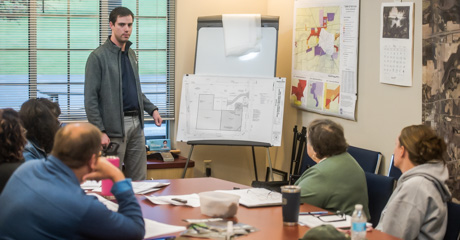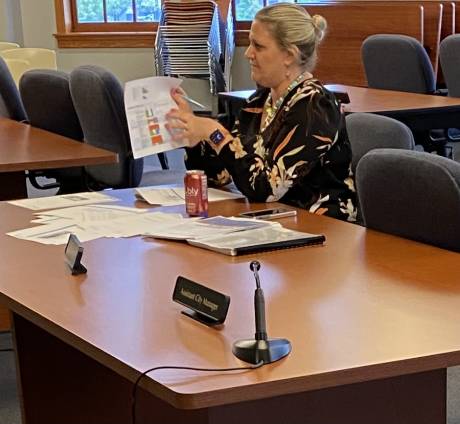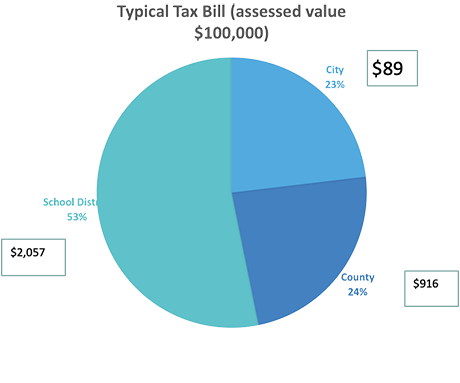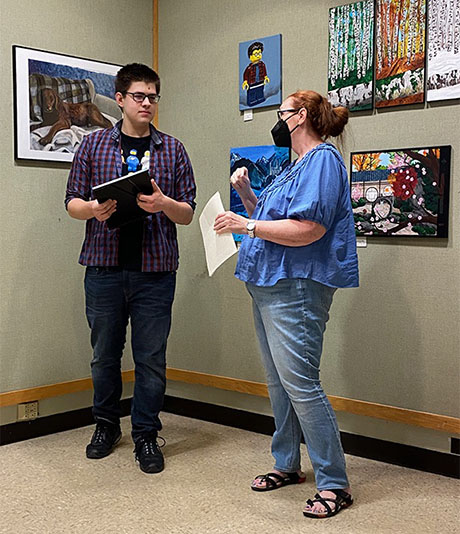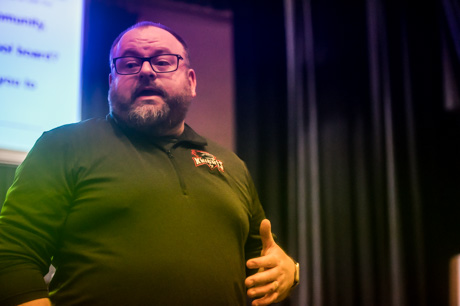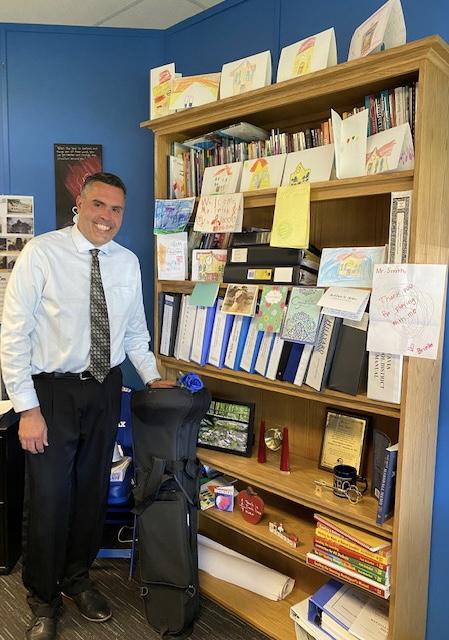PRESS RELEASE
Empire State Development (ESD) today announced that the application window is now open for the 2022 Grow-NY food and agriculture competition. Grow-NY, a unique initiative which connects innovators and investors in the food, beverage and agriculture sectors locally and around the globe, has already resulted in economic growth and entrepreneurial opportunity in Upstate New York. The Grow-NY region, a 22-county area spanning Central New York, the Finger Lakes, and the Southern Tier, has already seen hundreds of new jobs and millions of dollars of follow-on investment as a result of the competition. Grow-NY attracts high-growth food and agriculture startups to compete for $3 million in total prize money each year and supports 20 finalists through a business development phase that connects them with the region’s resources. Governor Kathy Hochul included funding for three additional rounds of this impactful competition in her FY 2023 budget.
Empire State Development President, CEO & Commissioner Hope Knight said, “This fourth round of Grow-NY will further build on the success of earlier competition winners, whose entrepreneurial ideas are fueling economic growth Upstate. These innovative companies have attracted significant investment and are seeding the ground for even more innovation, both throughout the Grow-NY region and around the world.”
The Grow-NY region, which hosts over 40 percent of New York’s 33,438 farms, includes an abundance of vibrant, fertile lands along with such major urban centers as Rochester, Syracuse, Ithaca and Binghamton. It is a 22-county region comprised of the following three areas:
· Finger Lakes – Genesee, Livingston, Monroe, Orleans, Ontario, Seneca, Wayne, Wyoming and Yates
· Central New York – Cayuga, Cortland, Madison, Onondaga and Oswego
· Southern Tier – Broome, Chemung, Chenango, Delaware, Schuyler, Steuben, Tioga and Tompkins
Winners are required to commit to operating in at least one of the 22 Grow-NY counties for at least 12 months and must agree to “pay-it-forward” provision in the form of an equity agreement. One finalist will receive a top prize of $1 million; two others will be awarded $500,000 prizes, and four more will be given $250,000 prizes. Winners will also receive tax incentives and publicity support to announce their achievements across the Grow-NY region and in their home regions. Funding for the program comes through Empire State Development from the Upstate Revitalization Initiative’s three regional entities, CNY Rising, Finger Lakes Forward, and Southern Tier Soaring, and is administered by Cornell’s Center for Regional Economic Advancement.
Ronald P. Lynch, Dean of the Cornell University College of Agriculture and Life Sciences Benjamin Z. Houlton, said, “Cornell is proud to support the Grow-NY competition, which plays a vital role in catalyzing food and agriculture start-ups and entrepreneurship across our region. By partnering across the public and private sectors, Grow-NY is critical to scaling new technologies and innovations needed to meet our state’s goals for more sustainable food systems that provide healthy, nutritious food to all.”
The startup competition begins its fourth year with impressive momentum, having garnered applications and interest from over a thousand businesses in 32 unique states and 37 other countries over the last three years. In all, 59 finalists have been selected to date, with 21 winners sharing $9 million in startup funding as well as the invaluable mentorship and networking benefits which the program delivers to finalists.
In addition to emphasizing innovation and scalability, the Grow-NY program is focused on drawing more diverse leaders to the region by reaching communities that have historically been left out of the innovation economy. In 2021, 51% of the 330 applicants included a founder from an underrepresented minority group, and 44% included a female founder.
“We are looking for food and ag innovators that operate at any point in the agrifood system that demonstrate a value to customers, an ability to grow quickly and sustainably, and diversity within their founding team,“ said Grow-NY program director Jenn Smith.
Applications must be submitted by Friday, July 1. In August, up to 20 finalists will be assigned mentors and enter the business development phase. All finalists will receive bespoke entrepreneurial support and valuable regional introductions, additional training to hone their live pitches, and an expenses-paid, three-day business development trip to the region for up to two team members.
The selected finalists will present their business plans during the Grow-NY Summit, Tuesday and Wednesday November 15-16, alongside a symposium of panel conversations and keynotes, a showcase of agencies, companies, research groups, and other organizations that serve startups working in food and ag, and a student stage where middle- and high school aged New Yorkers will pitch their ag- and food tech ideas.
Judges will base award decisions on the following five criteria:
· Viability of Commercialization and Business Model – the potential for the entrant to generate revenue and maintain a cost structure that allows for a competitive and sustainable business, demonstrate technological readiness or innovate to fulfill its value proposition;
· Team – Demonstration of a level of cohesion, completeness, diversity, and readiness within the team of founders, employees, and advisors; inclusion or plans for inclusion of employees and advisors from communities that have historically been excluded from the innovation economy, such as women and minorities;
· Customer Value – the degree to which the entrant is providing something for which customers are willing to pay, and addressing a substantial market;
· Food and Agriculture Innovation – the extent to which the entrant is pushing what’s considered state-of-the-art in the food and agriculture industries, and contributing to Upstate NY’s status as a global leader in innovation in these markets;
· Regional Job Creation – the potential for creating high-quality jobs in the Grow-NY footprint and relevance to the existing food and ag ecosystem; and
State Agriculture Commissioner Richard A. Ball said, “Through three rounds, the Grow-NY competition has highlighted New York’s agricultural and food industry partners and helped to foster tremendous innovation. I’m excited that this fourth round will continue to build on that success, further showcasing the strength and diversity of our agriculture and food businesses and attracting exciting, cutting-edge companies that are creating the ag technologies and jobs of the future while supporting our local farms.”
Central New York Regional Economic Development Council Co-Chairs Randy Wolken, President & CEO of the Manufacturers Association of Central New York, and Dr. Linda LeMura, President of Le Moyne College, said, "New York State continues to experience unprecedented growth in the agriculture and food industries. The globally renowned Grow-NY competition represents yet another exciting investment in our community that will further bolster regional job growth and further support our agricultural base throughout Central New York ensuring the region continues to rise."
Finger Lakes Regional Economic Development Co-Chair Bob Duffy, President and CEO, Greater Rochester Chamber of Commerce, and Denise Battles, President SUNY Geneseo, said, “The regional council is again proud to support round three of the innovative Grow-NY competition. Our agricultural and food industries are truly world- class and both their products and innovations are huge economic drivers for our state and region. Connecting the cutting-edge ideas of these entrepreneur teams with local industry partners supports the multi-pronged approach laid out in the Finger Lakes Forward Upstate Revitalization Initiative, which is working to create a thriving regional economy.”
Southern Tier Regional Economic Development Council Co-Chair Judy McKinney Cherry, Executive Director, Schuyler County Partnership for Economic Development (SCOPED), and Broome Community College President Kevin Drumm, said, "New York's agriculture industry is one of the most prestigious and productive in the nation. This initiative, with its focused investment in the region, adds great value to the Southern Tier's continued economic success in the ag sector. The Grow-NY competition enables innovative and competitive businesses to showcase their strengths and will further our efforts to bolster the regional economy ultimately helping the Southern Tier to soar."
To learn more about the Grow-NY competition, visit: www.grow-ny.com.
To learn more about the Cornell Center for Regional Economic Advancement, visit: http://crea.cornell.edu/
About Empire State Development
Empire State Development (ESD) is New York’s chief economic development agency (www.esd.ny.gov). The mission of ESD is to promote a vigorous and growing economy, encourage the creation of new job and economic opportunities, increase revenues to the State and its municipalities, and achieve stable and diversified local economies. Through the use of loans, grants, tax credits and other forms of financial assistance, ESD strives to enhance private business investment and growth to spur job creation and support prosperous communities across New York State. ESD is also the primary administrative agency overseeing the Regional Economic Development Councils and the marketing of “I LOVE NEW YORK,” the State’s iconic tourism brand. For more information on Regional Councils and Empire State Development, visit www.regionalcouncils.ny.gov and www.esd.ny.gov.
Accelerating Finger Lakes Forward
Today’s announcement complements “Finger Lakes Forward,” the region’s comprehensive blueprint to generate robust economic growth and community development. The regionally designed plan focuses on investing in key industries including photonics, agriculture and food production, and advanced manufacturing. Now, the region is accelerating Finger Lakes Forward with a $500 million State investment through the Upstate Revitalization Initiative. The State’s $500 million investment will incentivize private business to invest well over $2.5 billion – and the region’s plan, as submitted, projects up to 8,200 new jobs. More information is available at https://esd.ny.gov/finger-lakes-forward-uri.
Accelerating CNY Rising
Today's announcement complements “CNY Rising,” the region’s comprehensive blueprint to generate robust economic growth and community development. The regionally designed plan focuses on capitalizing on global market opportunities, strengthening entrepreneurship and creating an inclusive economy. Now, the region is accelerating CNY Rising with a $500 million State investment through the Upstate Revitalization Initiative. The State’s $500 million investment will incentivize private business to invest well over $2.5 billion – and the region’s plan, as submitted, projects up to 5,900 new jobs.
Accelerating Southern Tier Soaring
Today's announcement complements “Southern Tier Soaring,” the region’s comprehensive blueprint to generate robust economic growth and community development. The regionally designed plan focuses on attracting a talented workforce, growing business and driving innovation. Now, the region is accelerating Southern Tier Soaring with a $500 million State investment through the Upstate Revitalization Initiative. The State’s $500 million investment will incentivize private business to invest well over $2.5 billion – and the region’s plan, as submitted, projects up to 10,200 new jobs.
